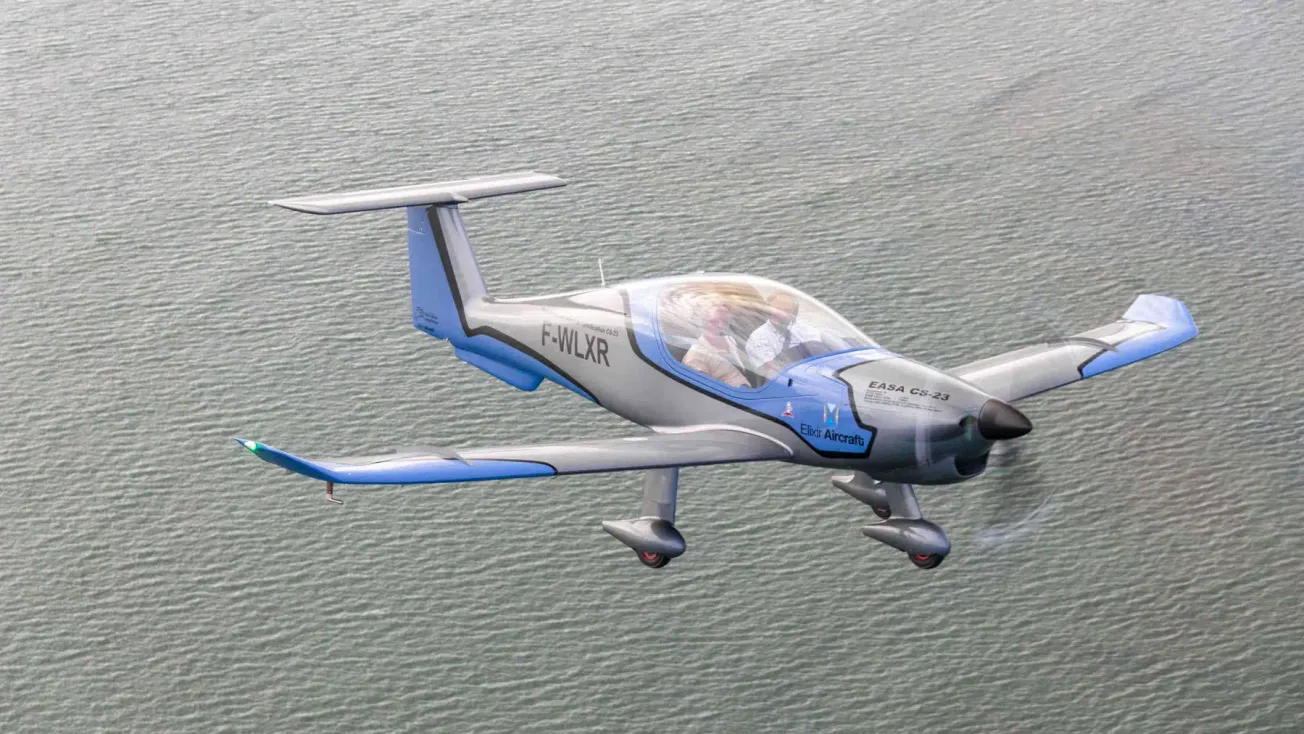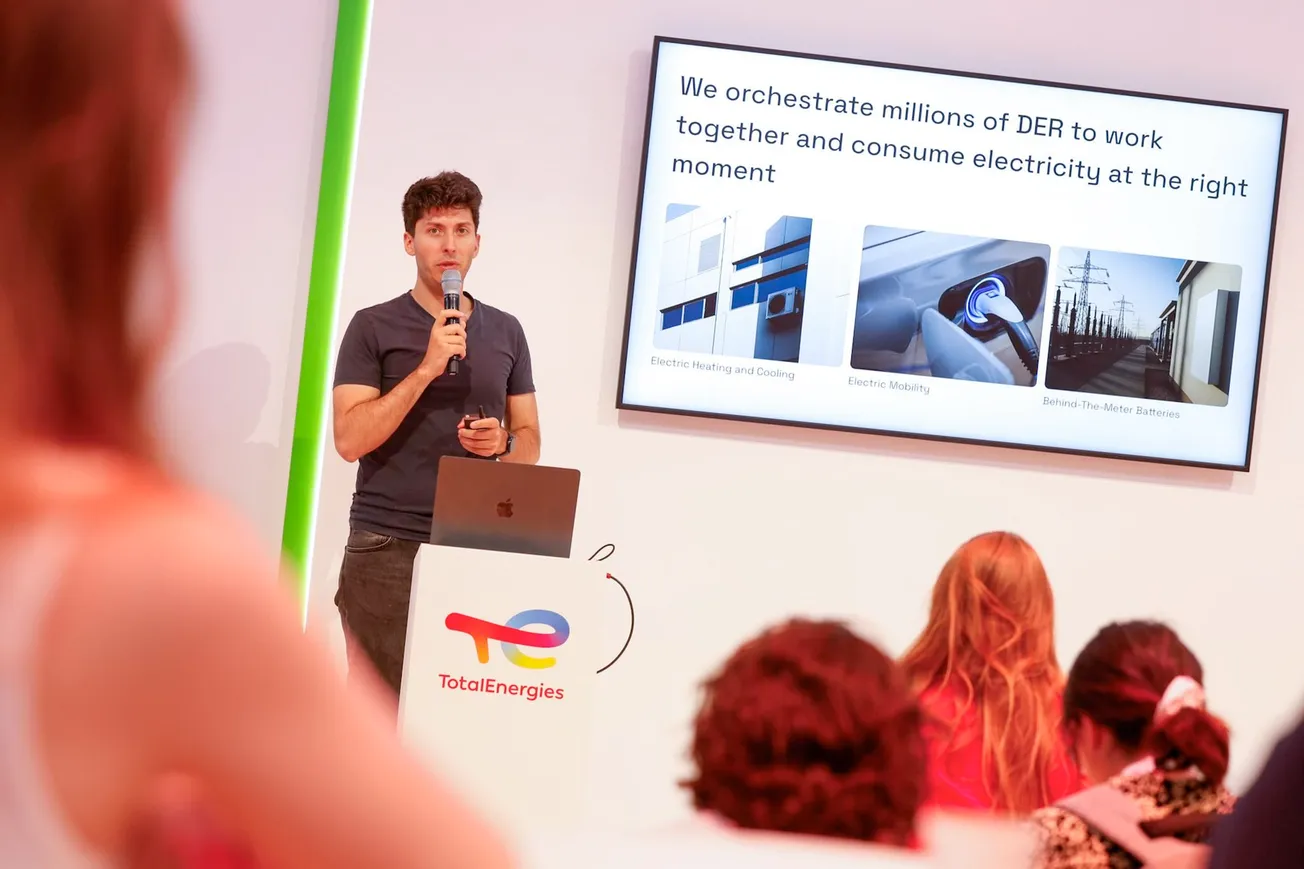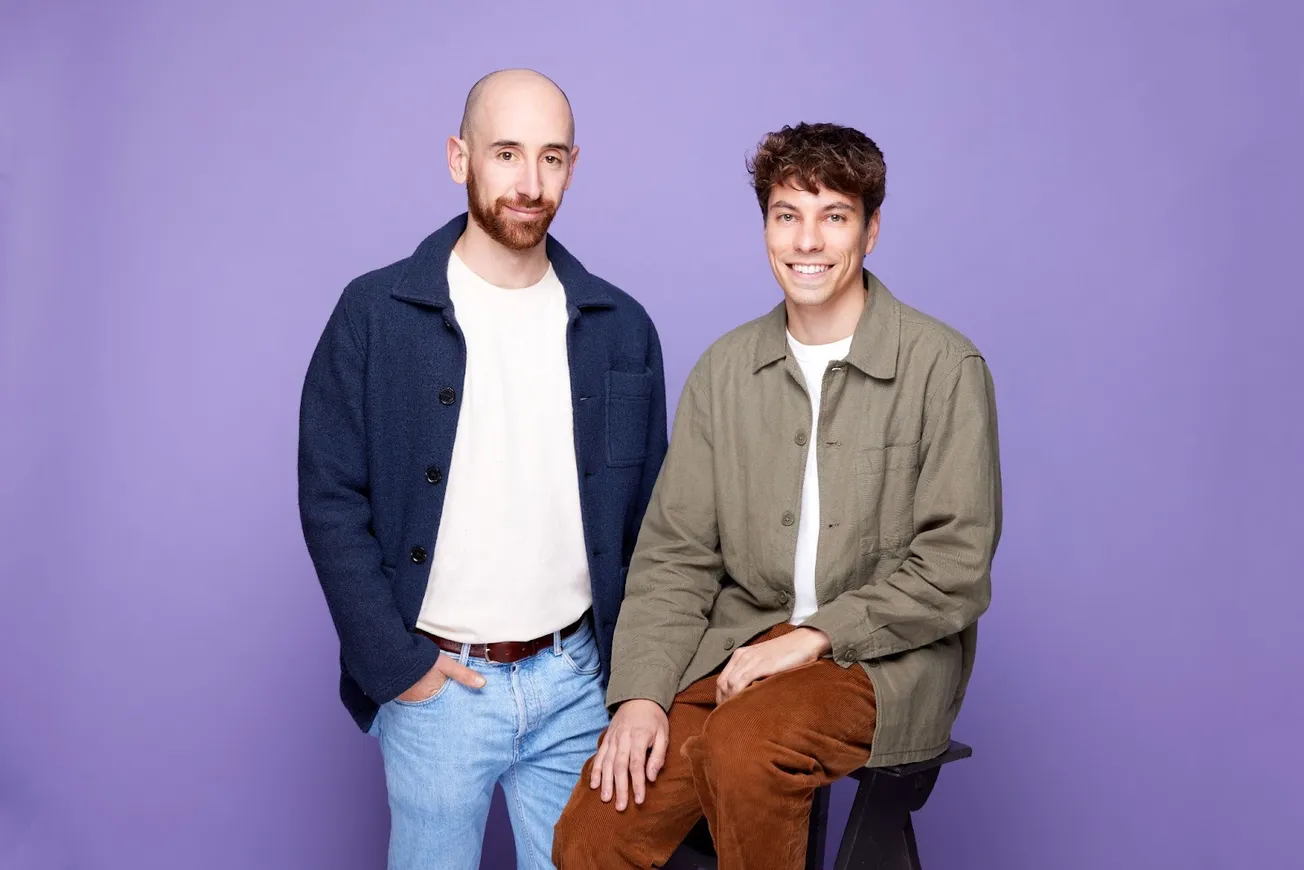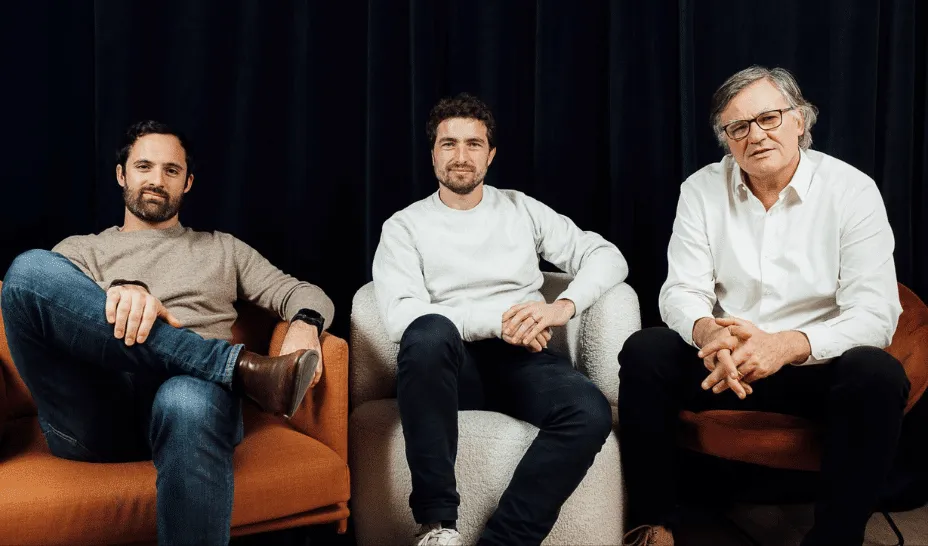Arthur Léopold-Léger grew up in a family that was passionate about flying and sailing. He got his pilot's license when he was 16 years old and he also helped his father build competitive sailing boats.
When it comes to boats, Léopold-Léger said there is constant innovation happening as racing teams seek to gain an edge with new designs and materials. The challenge always is to find the right balance between performance and safety. He used that knowledge to build his boat for the Mini-Transat, a solo crossing of the Atlantic, leveraging new composites and technology.
Almost a decade ago, he began thinking about ways to use that approach to sailing innovation to rethink aviation design. This led him in 2015 to co-found Elixir Aircraft to develop a light-weight aircraft that would require significantly less fuel, and that could eventually be converted to cleaner alternative fuels when they are readily available.
The company now stands on the cusp of scaling its industrialization thanks to a recent round of funding that includes money from France's new Industrialization Seed Fund managed by Bpifrance. Elixir is part of a small but growing ecosystem of Sustainable Aviation startups emerging in France as the country tries to reinvent a critical industry to address climate change (See our Sector Deep Dive). The industry and France's government are counting on the development of innovative projects by entrepreneurs to boost efforts by traditional industry giants.
Thanks to incumbents like Airbus, France still is a world leader in commercial aircraft and business jets. But Léopold-Léger said that the nation is lagging when it comes to new forms of sustainable aviation and Elixir Aircraft is pushing hard to change that.
"We are far behind when it comes to light aviation," he said. "The French government's strategy is to make sure that we keep the lead wherever we have the lead, and we work to gain a lead on the markets where we don't have yet innovation."
What is Elixir Aircraft?
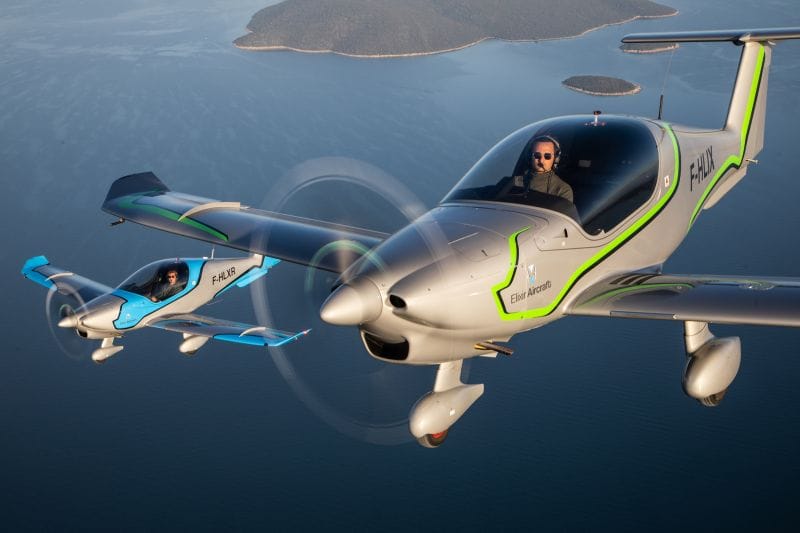
Based in La Rochelle, Elixir Aircraft has developed a two-seater plane for training pilots using a design and composite material called "Carbon OneShot" that was influenced by the world of competitive racing. The concept includes building a simpler structure with fewer components and lighter materials. This reduces fuel consumption and CO2 emissions by 70% and requires much less maintenance, offering significantly lower costs for operators while maintaining safety. The design was officially approved for flight in Europe in 2020 but is still awaiting approval by U.S. regulators.
Why?
The primary motivation is to address the climate impact of the aviation sector. Given the vastness of the industry, the Elixir Aircraft co-founders picked a very specific market to address for their first planes: pilot training.
There is a looming shortage of commercial and business-class pilots which is creating an urgent demand for pilot training. However, schools use planes that on average are 48 years old, and therefore use ancient energy-inefficient fuel systems and are often extremely noisy. The company estimates that there are around 230,000 of these older-generation single-engine piston aircraft still in operation.
With performance improvements, cheaper maintenance, and lower fuel consumption, Elixir Aircraft believes it can cut operating costs by about 75% for these schools.
"If you want to learn to become a pro pilot, there is a good chance that you will learn to fly on an aircraft that is double your age," Léopold-Léger said. "They lack performance and they are not good at respecting the environment. That is a great opportunity for us to bring innovation."
Under The Hood
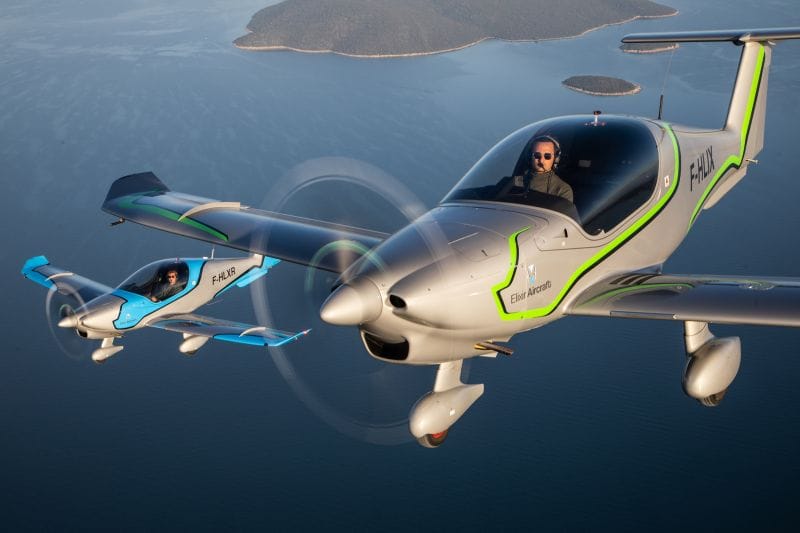
Elixir Aircraft's development started with trying to massively simplify the airplane design. Where a classic light aircraft might have 30,000 parts made by 16,000 different suppliers, Elixir cut that to 1,000 parts from 700 suppliers.
It also reduced the weight significantly by using carbon fiber composites developed for racing boats rather than aluminum used for traditional plans. While other planes now use carbon fiber, they also generally use the same design that requires all of those parts. Elixir took its design a step further by making the main wing structure and main body from one molded part, thus the name "OneShot Carbon."
The company had to do some work to adapt the type of sailing carbon fiber to the structural needs of an aircraft. But that was achieved and the plan received European certification in 2020.
The exterior of the plane is also more aerodynamic. And inside, the company has developed a configurable glass cockpit with touch-screens.
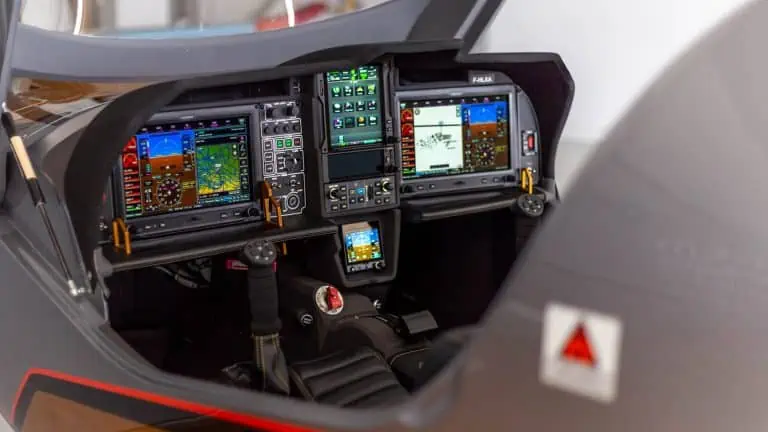
Who?
Léopold-Léger attended Kingston University near London where he met Elixir Aircraft co-founder Cyril Champenois, the company's sales and marketing manager. Champenois previously worked for Dassault Systemes.
The third co-founder is CTO Nicolas Mahuet who worked for DYNAERO in Toulouse for almost 15 years. Mahuet led much of the design work that led to the prototype and eventual certification.
The Full Scoop...
Subscribe to get Elixir Aircraft's funding details and its scaling roadmap.

